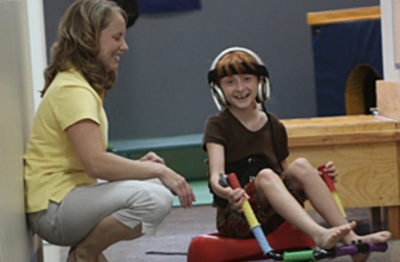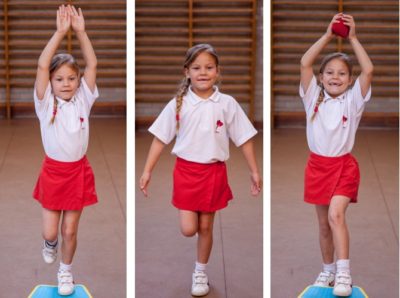Research -- StepUp to Learn
Attention Deficit Disorders Could Stem from Impaired Brain Coordination
Researchers have discovered how two brain regions work together to maintain attention, and how discordance between the regions could lead to attention deficit disorders, including schizophrenia, bipolar disorder, and major depression.
Kindergarten difficulties may predict academic achievement across primary grades
New research suggests deficits in executive functions in kindergarten increase the risk for experiencing repeated academic difficulties in mathematics, reading and science from first to third grade.
NeuroNet Success Stories: KidSense Therapy
Marcia Washington, OTR/L, has been practicing pediatric occupational therapy for more than 10 years. She is the owner of KidSense Therapy, a sensory clinic providing occupational therapy for children birth to age 18 years in Pontotoc, Mississippi. We recently had the chance to catch up with Marcia and ask her about her experience using NeuroNet programs in her therapy practice:
NeuroNet Goes to China!
We recently travelled to China to see how schools in Beijing are using NeuroNet, as well as to share the science behind NeuroNet with parents and teachers in Shanghai.
Childhood aggression linked to deficits in executive function
Primary school children with reduced cognitive skills for planning and self-restraint are more likely to show increased aggression in middle childhood.
Exercise increases brain size, new research finds
Studies in mice and rats have consistently shown that physical exercise increases the size of the hippocampus but until now evidence in humans had been inconsistent.
How Do NeuroNet's Online Nanodegrees for Therapists Work?
How do NeuroNet's online Nanodegrees work for therapists? This post provides an overview of one of NeuroNet's software programs as well the online course experience for therapists.
Screen children with reading difficulties more thoroughly for hearing problems, says new report
Children with reading difficulties should be more thoroughly screened for hearing problems, a new report by Coventry University academics has said.
Study Reads Between the Lines in Children's Vocabulary Differences
A new study from the Callier Center for Communication Disorders at The University of Texas at Dallas found these differences in vocabulary growth among grade school children of different socioeconomic statuses are likely related to differences in the process of word learning.
Insight into how infants learn to walk
Ten-week-old babies can learn from practicing walking months before they begin walking themselves say researchers
‘Mind’s eye blink’ proves ‘paying attention’ is not just a figure of speech
When your attention shifts from one place to another, your brain blinks. The blinks are momentary unconscious gaps in visual perception and came as a surprise to the team of Vanderbilt psychologists who discovered the phenomenon while studying the benefits of attention
Car, stroller, juice: Babies understand when words are related
The meaning behind infants’ screeches, squeals and wails may frustrate and confound sleep-deprived new parents. But at an age when babies cannot yet speak to us in words, they are already avid students of language.












